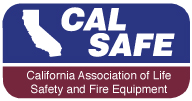The State Fire Marshal has submitted the Fire Sprinkler Fitter Certification Regulations for public comment.
You can download a copy of the regulation here
This will directly impact anyone who is working with fire sprinkler systems, including small hose connections, standpipes, private fire service mains including fire hydrants and monitor nozzles, foam water systems, fire pumps, water storage tanks, low, medium and high expansion foam systems, and water mist systems. This regulation will require that every person who installs, alters or REPAIRS a water-based fire protection system to be either certified or registered.
Here are some of the major components of the regulation.
- Any individual who is performing the installation, alteration or repair of water-based fire protection systems will have to be certified or registered with the State Fire Marshal
- The qualifications for Certification will be someone who has completed a State or Federally Approved Apprenticeship program with 7,000 hours and 5 years’ experience or if only applying for Multi-family Residential only 3,500 hours and 3 years’ experience in the program. This certification will require passing a test.
- There is an alternative through a newly established State Fire Marshal Job Related Experience Program (JREP) that has a similar learning and progress tract to the apprenticeship programs.
- In addition to the fitter certification there are two registrations. One is for apprentices. The requirement for this certification is to be enrollment in one of the State or Federally approved apprenticeship programs or in the OSFM JREP program.
The other is for a trainee. They can only be registered as a trainee for one year after being hired before they either have to be accepted into an apprenticeship program and re-register as an apprentice or leave the trade.
- All jobs will have to have a certified fitter supervising each apprentice, a one to one ratio or as the apprenticeship programs the apprentice is enrolled in dictates (most are 1 to 1).
- In addition to this 1 to 1 supervision, that certified fitter can also supervise up to two trainees. The only exception to this ratio is those “apprentices” registered in the OSFM JREP program. Five of these apprentices can be supervised by one certified fitter but in this situation that certified fitter cannot supervise any trainees. (Note: these JREP “apprentices” cannot be used for public works job requirements)
- There is a period of the first 6 months that fitters with “verifiable” experience of 7,000 hours and 5 years’ experience (or the 3,500 & 3 year for mulita-family only) will be able to apply for certification without the benefit of having graduated from an apprenticeship program and without having to take the test. Anyone with less experience than that or misses the 6-month window, will have to enroll in either an approved apprenticeship program or the OSFM JREP program and only be a registered apprentice having to work under the supervision of a certified fitter until they compete the program.
- Repair is defined as “to restore to normal working condition or to fix damage”. It is likely that some work associated with your maintenance work may be considered repair and will require a certified fitter to perform. (Anyone Installing and or Repairing Systems such as changing Sprinkler Heads and or GAUGE on riser, must be a certified fitter or being DIRECTLY SUPERVISED BY a certified fitter.)
- Testing and maintenance are not a part of this regulation. It will be covered in the next “phase”. Some on the committee feel there should be no difference in the requirements of a certified fitter and a certified test and maintenance technician.
- The proposed regulations will require Certified fitters to be employed by a C16 contractor. Any repairs regardless of the price can no longer be performed by a OSFM A license holder but must now only be performed by a certified fitter employed by a C16 contractor.
- The enforcement component includes the option of issuing a “Stop Work” order if corrections of violations are not made or if it is determined that work was performed with uncertified and unregistered fitters.
These are just some of the highlights. If you see that this is going to impact your business by:
- disqualifying all of your fitters who will not have the ability to be immediately certified
- make it more difficult to find and retain qualified personnel
- adding prohibitive costs to your business in order to comply (proponents state there is not a significant cost impact to small business)
- raising the cost to all end users due to the increased compliance costs then you may want to send in a public comment and if there are public hearings, plan on attending and voicing your objections.
When you read the statement of reasons it states that this is needed because the current licenses and processes do not insure that systems are installed correctly and that the result is unsafe systems. The statistics reveal quite the opposite. With the California fire codes, licensing and local permitting processes, systems are installed correctly. There is no statistics in the state of California that documents a loss or loss of life due to an improperly installed system. The NFPA national statistics reveal that the items that lead to system failure are things like water shut off, hazard exceeds the system capability (likely due to changes in commodity), inadequate water supplies or lack of maintenance not due to unqualified fitter’s installations.
If you want to send in a comment, you need to do so before March 28th.
Comments may be submitted to the SFM via:
Email: diane.arend@fire.ca.gov; or Facsimile: (916) 445-8459; or
US Mail (postmarked no later than March 28, 2016):
Office of the State Fire Marshal
P.O. Box 944246, Sacramento, CA 94244-2460
Attn: Diane Arend, Code Development & Analysis
